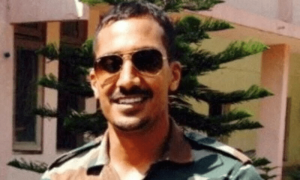ISLAMABAD: Following a blitz on both mainstream and social media, the government has asked the general public to send in written suggestions – within seven days – regarding the Prevention of Electronic Crimes Bill (PECB) 2015. However, industry professionals and stakeholders are still sceptical about this process and have resolved to write to the chairman of the National Assembly Standing Committee on Information Technology to request an opportunity to make a presentation to the standing committee.
In addition, the PPP has formed a committee to introduce amendments to the bill that are in line with the new Magna Carta – agreed upon at the recently-held Global Conference on Cyberspace 2015 – to protect the rights of Internet users.
Read: NA committee approves 'controversial' cyber-crime bill
Saying that the PPP has reservations over the current bill, Opposition leader in the National Assembly Syed Khurshid Ahmed Shah told Dawn that the PPP had constituted a team, consisting of former federal minister Syed Naveed Qamar and Nafisa Shah to re-examine it.
Members of the Joint Action Committee (JAC), a body of civil society members and industry representatives that have come out in opposition to the ‘draconian bill’ have also asked that the bill be formally sent back to the standing committee for reconsideration.
According to an official statement, released on Saturday, the general public and other stakeholders have been asked to send proposed amendments and their justification, by retired Captain Mohammad Safdar, who is the chairman of the standing committee in question.
Also read: New cybercrime bill tough on individuals’ rights, soft on crime
Objections and proposed amendments can be sent via email to naeemshafi69@hotmail.com, or through post to the secretary of the National Assembly Standing Committee on Information technology. The modified draft of the bill has been placed on the websites of the National Assembly as well as the Ministry of IT (MoIT) for ready reference.
MoIT spokesperson Sagheer Watoo told Dawn that the bill currently pending before parliament was not the same one that was introduced by the ministry in January last year.
Stakeholders sceptical of efficacy of written comments; PPP sets up body to make bill more user-friendly
He said that the IT ministry had prepared the bill after 24 meetings with relevant stakeholders, including representatives of civil society and the industry, but the government legal team – consisting of Barrister Zafarullah Khan and Khawaja Zaheer – had introduced certain amendments that made the current bill entirely different from what the IT ministry had sent to the law ministry last year.
Legal expert Babar Sattar said that it seemed that the author of the bill was ignorant of IT, adding that by allowing investigators access to suspected devices, such as laptops or computer servers, the law was giving government officials the right to enter people’s homes and invade their private space.
Around the same time the bill was sent to parliament, representatives from 100 countries around the world gathered in The Hague, Netherlands to discuss ways and means to ensure that cyberspace is more open and secure for users.
Contrary to the recommendations of the conference, however, the bill currently poised to become law has been criticised for inadequately defining various terms and activities.
Usama Khilji of advocacy group Bolo Bhi told Dawn that there were certain specific clauses that were very problematic in the current bill. “Section 34 of the bill empowers the PTA to censor anything, which will affect the freedom of the media and freedom of expression. Moreover, Section 18 bans cartoons and caricatures of political figures, which should also be expunged,” he said.
“The power to censor material from the Internet should rest with the courts, not the PTA,” he said.
ISPAK Convener Wahajus Siraj told Dawn: “Written suggestions can be ignored or rejected, but there will be a proper record of briefings given to the standing committee and the government will not be able to deny that it received suggestions,” he said.
P@SHA representative Syed Ahmad told Dawn that although comments have been sought on the bill, there was no official word that the bill had been sent back to the standing committee.
Published in Dawn, May 3rd, 2015
On a mobile phone? Get the Dawn Mobile App: Apple Store | Google Play













































